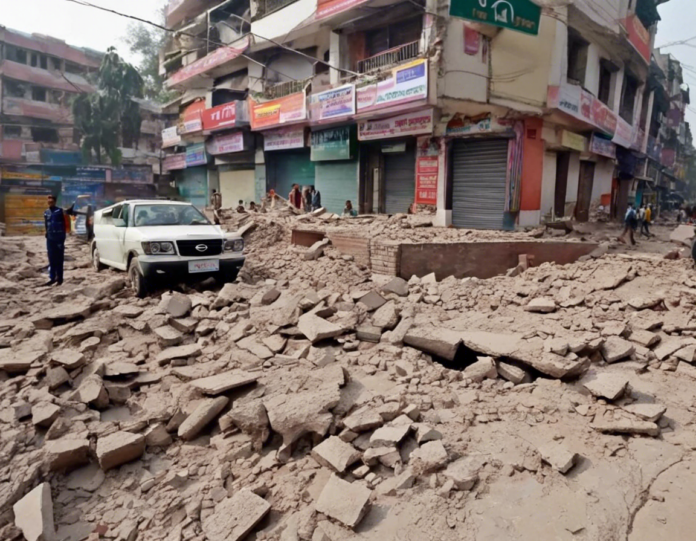On January 19th, 2022, the city of Patna in Bihar, India, experienced a significant earthquake, sending shockwaves and panic among its residents. The tremor, with a magnitude of 5.2 on the Richter scale, struck at a shallow depth of 10 kilometers, causing buildings to shake and people to rush out into the streets. While the city has a history of seismic activity due to its location in a high-risk seismic zone, this recent event has raised concerns about the earthquake readiness and preparedness of the region.
Understanding Earthquakes
Earthquakes are natural phenomena that occur when there is a sudden release of energy in the Earth’s crust, leading to seismic waves. This release of energy is typically caused by the movement of tectonic plates, faults, or volcanic activity. The severity of an earthquake is measured on the Richter scale, which quantifies the magnitude of the seismic event.
Earthquake Preparedness in Patna
Given Patna’s susceptibility to seismic activity, it is crucial for the city and its residents to prioritize earthquake preparedness and resilience. Here are some key steps that can be taken to mitigate the impact of earthquakes in the region:
1. Building Codes and Infrastructure
Ensuring that buildings in Patna comply with earthquake-resistant building codes is essential to minimize damage during seismic events. Retrofitting older structures and incorporating seismic design principles in new constructions can significantly improve resilience.
2. Emergency Response Plans
Developing and practicing earthquake emergency response plans can save lives and reduce chaos during and after an earthquake. Establishing communication protocols, evacuation routes, and designated safe zones are critical components of an effective emergency response strategy.
3. Public Awareness and Education
Raising awareness about earthquake risks and safety measures among the public is key to building a resilient community. Conducting drills, workshops, and educational campaigns can help citizens understand what to do before, during, and after an earthquake.
4. Strengthening Infrastructure
Investing in the strengthening of critical infrastructure such as hospitals, schools, and communication networks can ensure that essential services remain operational during and after an earthquake. Securing lifelines and utilities is vital for a quick recovery post-disaster.
5. Early Warning Systems
Implementing earthquake early warning systems can provide crucial seconds to minutes of advance notice before the shaking begins, allowing people to take cover, shut down machinery, or evacuate buildings. These systems can significantly reduce casualties and damages.
Frequently Asked Questions (FAQs)
1. What causes earthquakes in Patna?
Answer: Earthquakes in Patna are primarily caused by the movement of tectonic plates along fault lines in the region, as it is located in a high-risk seismic zone.
2. How can I prepare my home for an earthquake in Patna?
Answer: Securing heavy furniture, water heaters, and cabinets to walls, keeping emergency supplies handy, and retrofitting older buildings are essential steps to prepare your home for an earthquake in Patna.
3. Are earthquake drills conducted in schools in Patna?
Answer: Yes, many schools in Patna conduct regular earthquake drills to educate students and staff on how to respond during seismic events.
4. What should I do during an earthquake in Patna?
Answer: Drop, cover, and hold on during an earthquake to protect yourself from falling objects and debris. Move to a safe location away from windows and tall furniture.
5. How can I help with earthquake relief efforts in Patna?
Answer: Donating to reputable organizations, volunteering with local relief agencies, and spreading awareness about earthquake preparedness are ways to contribute to earthquake relief efforts in Patna.
In conclusion, earthquakes are natural disasters that can have devastating consequences, especially in high-risk seismic zones like Patna. By prioritizing earthquake preparedness, raising public awareness, and investing in resilient infrastructure, the city can better withstand and recover from seismic events in the future. Stay informed, stay prepared, and stay safe.





